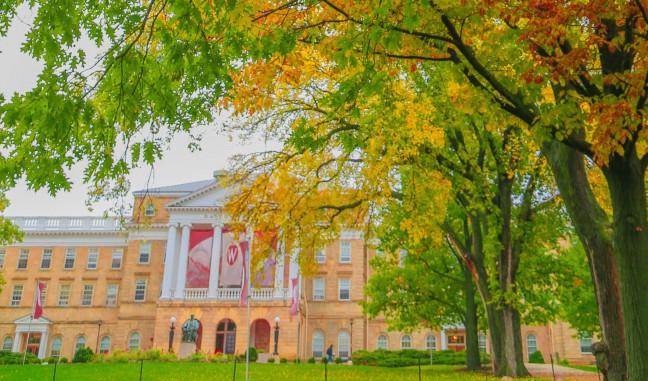When I was vice chair of the Associated Students of Madison as a junior in 2010, it was clear the graduate student members of student council approached the meetings differently than the undergraduate members.
Graduate student members were already near-professionals, spending more time doing research and teaching courses than studying at the library or buying textbooks. Many had husbands, wives and children, and coming to meetings twice a week in the evening would begin to wear thin. We burned through graduate students. I don’t think we kept the graduate student seats full for longer than a few months during my tenure in ASM. Each came into ASM with great ideas for making student council more efficient or working on campaigns that the undergraduates would never have thought of. They viewed the organization and campus differently, and had different priorities.
Most importantly, I’m convinced that they were right.
Graduate students do, and should, see campus differently. Many graduate students (I’m lumping in professional students like Medical School and Law and Veterinary students as well) view themselves as pre-professionals or, in some cases, pre-faculty — which is accurate. One of the first things many graduate programs do is eliminate the “professor/student” divide and encourage everyone to use first names. It’s personal, it’s meaningful and it’s different for undergraduates. Graduate school is, broadly, about turning students into faculty and the current undergraduate-centric student government does not fit the broader goals of the graduate schools.
Last year, the graduate school and the research enterprise went through a major reorganization without ASM involved in the process at all. Because current graduate students are disengaged, and unlikely to engage with the current heavily undergraduate-centric ASM, I propose the creation of a new student government specifically for graduate students, apart from the ASM Student Council.
There is not an “official” way of creating a student government. Basically, if you start meeting, and you can get the administration to deal with you, you’ve created a student government. The graduate students could do this by the end of the semester if determined, end of the year for certain.
I envision this new governing body to be similar to the faculty senate. Many graduate students will go on to be faculty whether here or elsewhere, so let’s adopt their successful structure and focus on issues that are most pertinent to them. This would be a roughly 100-person body, composed of representatives of each department. The group meets once a month, during normal working hours, and focuses strictly on governance issues. Give graduate student senators a multiyear term — like faculty senators have — and create an executive committee that meets weekly to plan the broader goals and logistics of the larger senate.
Hierarchically, I don’t particularly care how this is set up. Could it be under the current ASM brand as a partner with the undergraduate student council? Sure. Could it be a separate entity? Sure. Will the Student Services Finance Committee still control all of graduate students’ segregated fees? Maybe. I don’t care, and frankly it doesn’t really matter.
What does matter is that graduate students represent one in every four students on this campus, and while they compose their fair share of student council, it is difficult to find representatives because many of the graduate students who are most engaged already give much of their time to their departmental governance organizations or come from a university where the student government is a joke. University of Wisconsin is blessed with a student government that has real power and authority, but it is still so hard to get graduate students to give a damn about ASM, more difficult than getting undergraduates to give a damn about ASM.
Specific liaison relationships can be worked out down the road. Maybe the Graduate Student Senate should have the right to appoint a few members of the SSFC to ensure graduate students remain in the conversation regarding student fees. Shared governance committees already break out undergraduate and graduate students so that is an easy transition.
These are solvable problems and ones that shouldn’t deter us from the right course. Let the graduate students self-govern. It will be more effective, more efficient and more engaging, which, in the end, is what the purpose of student government at UW is.
Adam Johnson ([email protected]) is a graduate student at the La Follette School of Public Affairs.














